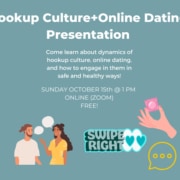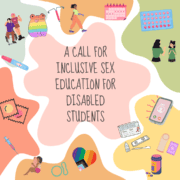Reclaim Reclama 2025 Live
/in Awareness, Education, Events, Prevention, Reclaim Reclama 2025Reclaim/Reclama 2025 is SARC’s annual art magazine featuring the works of people across Oregon who have been impacted by sexual violence.
Joyful Resistance LIVE 2025
/in Awareness, Education, Events, Prevention, Reclaim Reclama 2025The Sexual Assault Resource Center of Oregon invites you to join us for the second annual Reclaim/Reclama LIVE on Wednesday, April 9th from 5:30-8:00pm at the Jackson Bottom Wetlands Nature Center in Hillsboro, Oregon.
Reclaim Reclama 2025
/in Awareness, Education, Events, Prevention, Reclaim Reclama 2025Reclaim/Reclama 2025 is SARC’s annual art magazine featuring the works of people across Oregon who have been impacted by sexual violence.
CARING FOR YOUR MENTAL HEALTH IN TIMES OF UNCERTAINTY
/in Awareness, Education, Mental Health, Self CareWith the 2024 election right around the corner, or the election results having just come in (depending on when you’re reading this), survivors of sexual violence may be experiencing worry, anxiety, and a perception of threats to their human rights and identity.
Reclaim Reclama 2024
/in Awareness, Education, Events, Prevention, Reclaim Reclama 2024Reclaim/Reclama 2024 is SARC’s annual art magazine featuring the works of people across Oregon who have been impacted by sexual violence.
Hookup Culture+Online Dating Presentation
/in Dating, EventsAttend this free virtual presentation on the dynamics of hookup culture, online dating, and learn how to engage in them in safe and healthy ways!
What you should know about Sexual Assault in Schools
/in Awareness, Dating, Education, Self CareAs students, we expect educational institutions to be a safe haven where we can freely learn, grow, and thrive. Unfortunately, the reality is far from what we imagine.
Beyond the Birds and the Bees: A Call for Inclusive Sex Education for Disabled Students
/in Awareness, Dating, Education, Self CarePicture this: it’s the start of a new school year, and you’re sitting in your first sex education class. You’re listening to the teacher drone on about the birds and the bees, but as the lesson progresses, you start to realize that something is missing.
ABOUT SARC
For over 40 years, SARC’s dedicated staff and volunteers have been providing crisis intervention and ongoing support services to folks who have been impacted by sexual violence. Crisis intervention, including over the phone support and in-person response, is available 24 hours a day, 365 days a year. Our operations are funded through government grants and generous donations from private foundations, companies, and individual donors, so that we may always offer our services to clients at no charge.
CONTACT SARC
Sexual Assault Resource Center
735 SW 158th Ave #100
Beaverton, OR 97006
Office: 503-626-9100
SARC Mailing Address
735 SW 158th Ave #180
Beaverton, OR 97006
Civil Rights Statement:
The Sexual Assault Resource Center (SARC)- Oregon operates its program, services and activities in compliance with federal nondiscrimination laws. No person shall, on the basis of race, color, national origin (including limited English proficiency), disability, religion, sex, gender identity, sexual orientation, or age, be excluded from participation in, be denied the benefits of, or be otherwise subjected to discrimination under any of our programs.








